By Godwin Etakibuebu
Before former President Olusegun Obasanjo spoke last week Friday, June 26, 2020, in Abeokuta – Ogun State, on reorganization of security architecture in Nigeria, in a lecture titled “COVID-19 and Nigeria security Issues: The Way Forward”, all Nigerians are fully aware, without any iota of doubt, that security of lives and properties had become a non-existent matter in our beloved country.
Yet, the man spoke with his typical style; a style that is peculiarly Obasanjo – the Enigma and Philomena, who would never call a spade by another name, except what it is – spade. Dealing on that topic of security restructuring [or reorganization – the exact word he used] in Nigeria; a topic he discusses with ease, given his antecedents in that field, he spoke to President Muhammadu Buhari, more in advisory role than rebuking. The canon of what he suggested to President Buhari to do fell within two factors of suggestions.
The first point he made, and this is as crucial as the second one, was his invitation to all Nigerians to see themselves as stakeholders in prosecution of security in the country. He made it very clear that security for one in a part of the country is security for all elsewhere within the geographical terrain of Nigeria. The old man beckoned to all – young or old, male or female, rural or urban dweller, high or low, to come together in savaging the country from the journey of flow of ruin it [the country] has embarked upon. Look at how the old man from Egba in Abeokuta put it.
“Wherever there is insecurity in Nigeria, it must be of concern to all of us. It should not be the attitude of ‘am alright Jack’ or ‘it serves them right’. I believe it should be ‘we are all in one bad boat and we must put all hands on deck to fix it’. Maybe now that we are all feeling the pinch, the collective fixing will be understood and be easy to accomplish”, Obasanjo said. “I will not hesitate to say that in this statement, Arewa message, spoke the minds and made presentation on behalf of majority of right-thinking Nigerians and not Northern Nigerians alone. We are all bothered and burdened”. This call is very crucial if we must survive this perilous time.
Then he moved to the very coordinate clarion call, and this he directed to President Buhari; a man that can better be described as his junior in everything, either in the Military or Political setting. And it is on this second point that the “reorganization of security architecture in Nigeria” was brought to the front burner by the former President – Olusegun Obasanjo.
This needful critical assignment is pushed on President Muhammadu Buhari’s shoulder squarely, for the obvious reason that it is only him that can do it, as he is the Commander-in-Chief of the Nigerian Armed Forces, who appoints his security chiefs discretionally. And only him can deploy them, instruct them, rebuke them, query them, redeploy them, discipline them, determine their appointments and even dismiss them from services. This is solely his responsibility as the C-in-C.
This is what the retired senior Military Four Star General told his retired junior Military Two Star General.
”Federal security architecture as organised and operated by the present government cannot give any individual or group hope, let alone assurance of security within Nigeria”. “Our destiny is in our own hands. In reform and restructuring, security architecture, structure and arrangement must devolve more security responsibility on the community, local and state authorities”. “Unfortunately, I have recently observed from some writers on the security situation in the North, the feeling or attitude of ‘it serves them right’. We must not gloat at the difficulties or misfortune of others, rather we must emphathise”.
The language coined out and used here by the former president while addressing the incumbent president, was more of military terminology, that might not give us [bloody civilian – isn’t that what the “bloody” military boys call us?] thorough meaning except you want to peep into their [Military] world of political intrigues.
Let us take his remark, printed boldly above, into proper interrogation so as to ascertain what the man [Obasanjo] has said. “Unfortunately, I have recently observed from some writers on the security situation in the North, the feeling or attitude of ‘it serves them right’.
What was that thing that made some writers, commentators, observers or even those the late Chief Bola Ige; the assassinated Attorney General of the Federation and Minister for Justice [the erudite legal luminary popularly referred to as Esa-Oke Cicero] called sit-down-look audience, have the feeling of “it serves them right”, whenever they contemplated on the security situation in the North? This was Obasanjo’s submission, which can rightfully be seen as bombshell, though not packaged and delivered in that format. Here is the cruise of the matter.
President Muhammadu Buhari took oath of office to defend and protect us – first was in May, 2015. He swore on oath with the Nigerian Constitution to do exactly this. And Nigerians hopefully, believing him, waited on him to do what he swore on oath to do. He set the ball rolling by appointing, amongst others, his service chiefs and deployed them for the assignments ahead, albeit securing and defending Nigerians and their properties.
But, on a closer look, some Nigerians were not comfortable with the appointments, specifically on those fully responsible for the security architecture of Nigeria. It was lopsided or leaning too much to one tribe and religion. This was Hausa/Fulani/Moslem. Some may want to correct me at this point by referring to office of the Chief of Defense Staff and that of the Chief of Naval Staff. Let us try not to be distracted by these “minority inclusion”, as they are what I have adequately dealt with in my incoming book – IN NIGERIA, THE VULTURE AND VIMPIRE ARE STILL FEEDING.
It was this exposition on recruitment of “security architecture” that created a Club of some silent but critical minds, which former President Obasanjo now referred to as “some writers on the security situation in the North, the feeling or attitude of ‘it serves them right’”. President Muhammadu Buhari maintained this line of thought throughout his first Four Years tenure, neither is he revising the modus operandi of erecting the “security architecture” around the same people, in his second tenure, as all of us witness currently.
What this action of the president translates to is that unless one is from a particular religion, and of a particular geopolitical zone of the country, such person may not be competent enough to handle matters of security for Nigeria, it doesn’t matter the pedigree of such person on security issues.
The most unfortunate and ironic evidential outcome [result] of President Buhari’s action, along the line of this discussion, remains nothing but continuous escalation of deeper hostility from anti-security elements of the Nigerian Society. And come to look at it this way. From Boko Haram [which was predominant when he was sworn into office in 2015], the increase in Banditry, Insurgency, Rustling, Kidnapping and other forms of criminality [which has almost brought ruin to the whole of the North/West, and path of North Central geopolitical zones, speak of “error of judgment on those recruited to build a security architecture” of bringing peace to Nigeria.
That is on one hand. And on the other hand is a greater disaster, challenging Mr President’s choice of those he deemed fit for driving security architecture of eradicating, or reducing to the minimum, insecurity from Nigeria generally and the far North particularly. Let us have a look at the greater danger first, before drawing the curtain on this exercise.
This danger was excellently escalated, interrogated and captured by my dear brother [though we have never met]; Segun Adeniyi – that prolific writer and Editorial Board Chairman of Thisday Newspaper, in his article, titled KATSINA: A STATE UNDER THE GUN!, brilliantly rendered in his column, in Thisday Newspaper of June 25, 2020. In gathering material for the said column, Segun gave details of sojourning in the North, particularly Katsina State and some other places of hostility in that geopolitical zones. He [Segun Adeniyi] interviewed the Emir of Katsina and this is what the latter had to say.
My simple question seemed to have thrown the Emir of Katsina, His Royal Highness, Dr Abdulmumini Kabir Usman, off balance. After a brief pause, he countered: “You are asking me how I feel when my people are being killed every day? We can spend a whole day discussing that. We are dealing with murderers, people for whom lives mean nothing but they seem to have overwhelmed the capacity of the state.” He explained the nature of the challenge, the historical decision that disempowered the traditional authority and in the process emboldened criminals within their domains, and added, “When the former Agriculture Minister, Mr Audu Ogbeh visited me last year with the CBN Governor, (Mr Godwin Emefiele) and they gave me some cotton seedlings, I asked what they wanted me to do with them. I told them what I needed from the federal government is protection for my people, most of who in any case have been forced to abandon their farms.”
“As the emir spoke, his pain was palpable. His encounter with Ogbeh and Emefiele occurred on 6th May last year and was lavishly reported in the media. The duo had visited Katsina State to launch the distribution of cotton seeds/inputs to farmers for the 2019 planting season. In the course of their courtesy call to the palace, the Emir had said: “Hon. minister, tell the president that we have to take very good care of our people’s security first. All these programmes, as good as they are, cannot be without security. Every day I receive reports of kidnappings and killings from district and village heads. I have not seen this kind of country; how do we live like animals? Three days ago, Magajin Gari (of Daura Emirate Council) was abducted. Nobody is safe now, whether in your house or on the road or wherever you are. Many people have abandoned their farms in fear of kidnapping and killings and other atrocities. It’s very unfortunate.”
Segun Adeniyi drove the same question round the North and his conclusion on the elusive peace in most part of the whole North presently, pointed to one fact, to wit: “a route that was never taken by President Muhammadu Buhari in erecting a Security Architecture”.
The Bandits, Cattle Rustlers and all other mayhem predators in the North, that have torn Zamfara, Sokoto, Kaduna, Katsina and Niger States into shreds today, are, to a larger percentage, Fulani origin. Of particular jeopardy was the Home-State of Mr President – Katsina State, where the Emir [of Katsina]’s quoted lamentation above serves all the details we may want to know.
It must have been for this reason that those genuine protesters from the North a few days ago, who began their protest in Katsina before moving same to Abuja, where President Buhari’s security apparatus made the mistake of arresting these genuine protesters.
On that protests and arrests, we heard more than enough from some Northern Elders, who are also Fulani. Tofa, a most respected full blooded Fulani, by all ethological interpretations, spoke a warning language directly to President Buhari, and cautioned him to release the leader of the protesters or “what happened in 2011 would be a child’s play”. Add the voice of Ango Abdullahi; the erudite leader of the Arewa Elders Forum and former Vice Chancellor of the prestigious Ahmadu Bello University to the cry coming from the North, you will understand the fact that the bubble is bursting from the President’s home front.
It is no longer at ease with both President Muhammadu Buhari and the Security Architecture he built. The more he wants to retain his security architecture, which he built around the same people he believes can do the job – the Hausa/Fulani/Moslem, the more he incurs the anger of all other Hausa-Fulani-Moslems [the majority] across the whole North. And this is Buhari’s actual predicament. And this is the simple translation of former President Olusegun Obasanjo’s narration. And this is what the Nigerian people are saying.
This leaves Muhammadu Buhari with one terrible decision to make. There is a book named “THE HARD WAY IS THE ONLY WAY”, which was translated into a film in the early 80s. The President might need to read this book before doing the needful that he needs to do most urgently. The needful expected of President Buhari is simple. But, will he be willing to do it?
Will President Muhammadu Buhari be willing to dismantle this octopus and nebulously packaged Security Architecture; a structure built on the deceit table of “only mine is the best for a more enduring Structure of inclusion”? Will he be able to step out of this Fulani enclave and step into a more inclusive Security Structure that will make life safe for all, the Fulani inclusive?
It is only President Muhammadu Buhari that can answer the question, even as l wished him well on this journey, which the late Dr Tai Solarin called a torturous journey.
Godwin Etakibuebu; a veteran Journalist, wrote from Lagos.
Contact:
www.godwintheguru.com
Twitter: @godwin_buebu
Facebook: Godwin Etakibuebu
Facebook Page: Veteran Column
Phone: +234-906-887-0014 – short messages only.
You can also listen to this author [Godwin Etakibuebu] every Monday; 9:30 – 11am on Lagos Talk 91.3 FM live, in a weekly review of topical issues, presented by The News Guru [TNG].
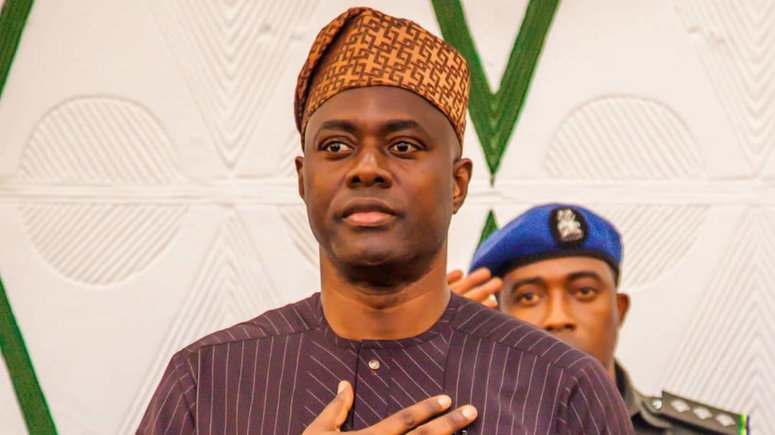
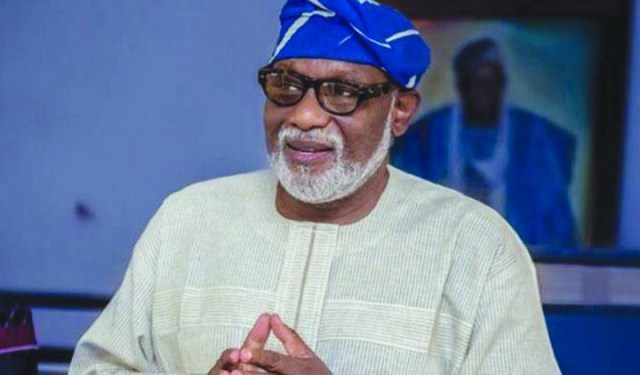
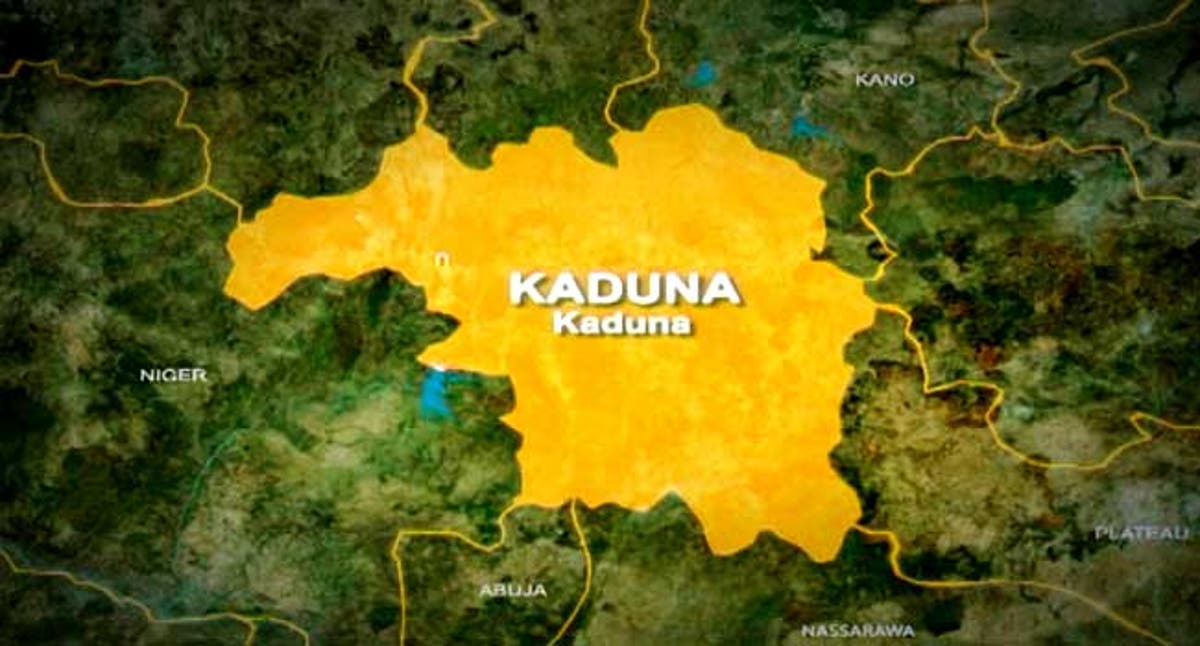
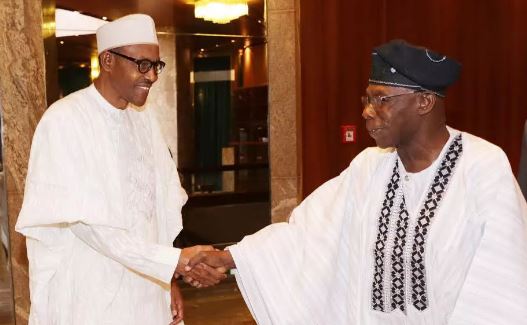
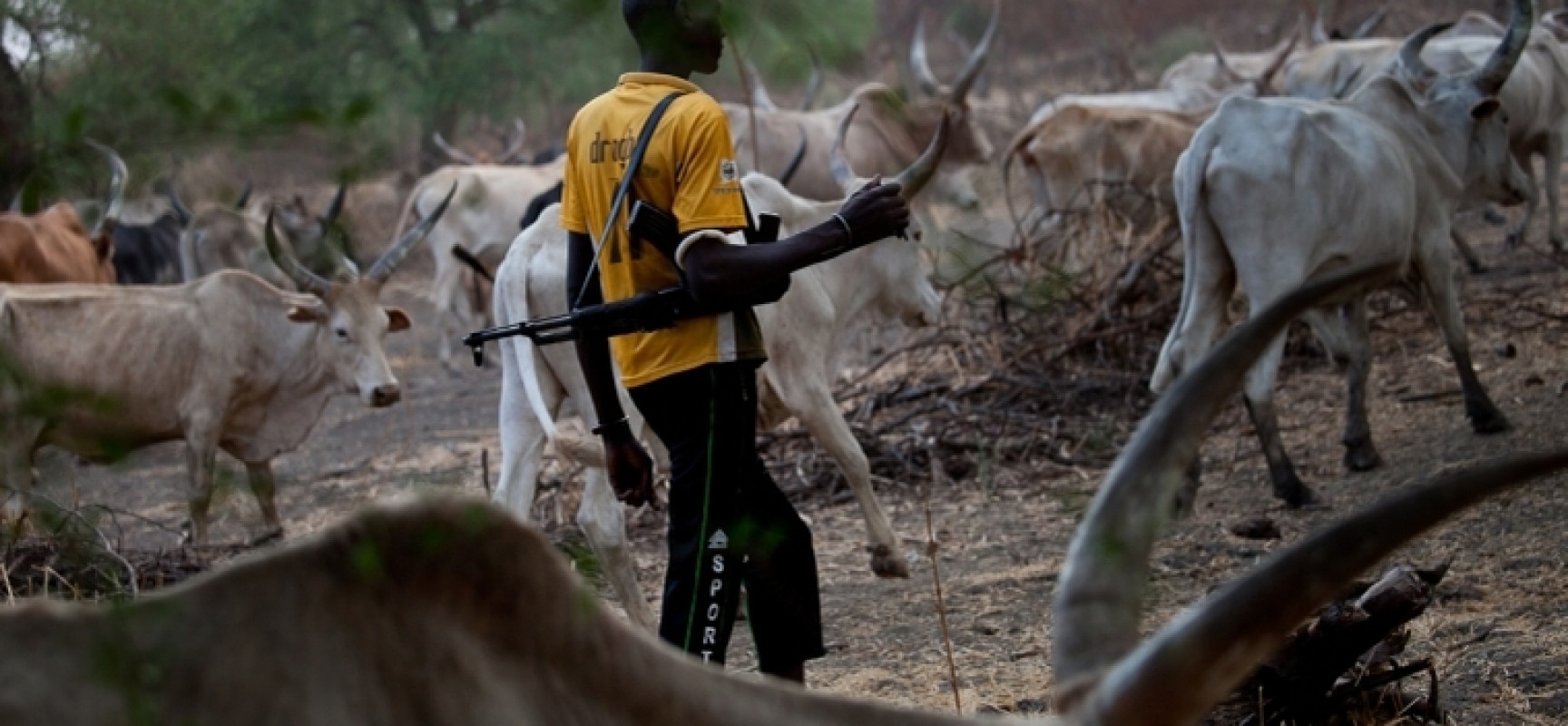
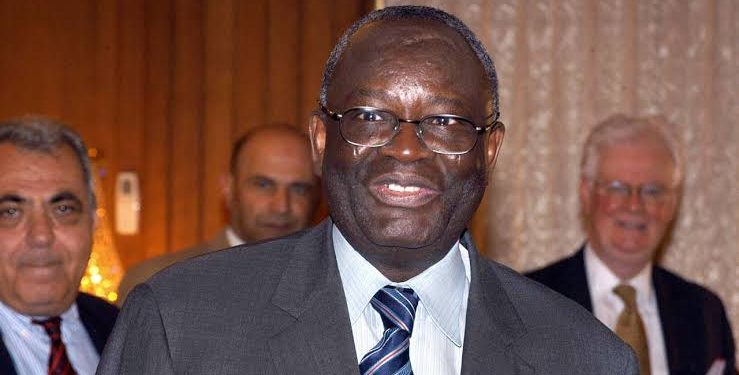
![[Video]Okpanam youths protest killing of youth Chairman, by Fulani Herdsmen](https://thenewsguru.ng/wp-content/uploads/2020/05/okpanam-protest.....png)